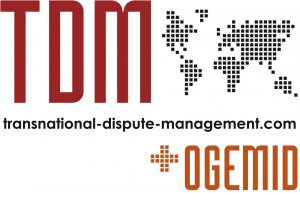Venue
Start
End
Time
Seminar 2 of 5
5:00 pm – 7:00 pm (SGT) / 9:00 am – 11:00 am (GMT) / 10:00 am – 12:00 pm (CET)
Upcoming webinars https://cil.nus.edu.sg/seminar-series-on-climate-change-and-investment/
What This Seminar is About
This seminar discusses whether, and if so how, compensation standards and quantum valuations in investment treaty arbitration can take account of the impact of climate change. The two central areas of focus will be (1) the appropriate legal standard of compensation that should be used in deciding investment treaty claims involving challenges to climate mitigation measures and (2) ensuring that the valuation methodologies used in investment treaty arbitrations sufficiently capture the economic risks posed by climate change (and likely state measures to address it), especially for investments in carbon-intensive industries. More specifically, this seminar will address the content and context of the provisions on compensation and full reparation under the International Law Commission’s Articles on State Responsibility; the “but for” presumption of compensation quantifications; economic risks to investments in fossil fuels as the global economy moves away from carbon-intensive activities, such as concept of “stranded assets”; and the valuation methods employed in climate change mitigation cases.
Background to the Seminar
Under the Paris Agreement states have pledged to limit global warming to 1.5° -- 2° C above pre-industrial levels. To achieve this goal will require an unprecedented effort by states individually and collectively to adjust their economies and societies to limit or eliminate carbon-intensive activities and shift towards Paris-aligned ones.
Among the measures that states will need to adopt are those targeted at climate change mitigation. These include, inter alia, measures for the phase-out of fossil fuels, the imposition of carbon pricing and taxes, and incentives for the development and production of renewable sources of energy. Enacting these measures will have profound economic implications for investors, both those currently involved in carbon-intensive activities as well as those involved in the development and production of renewable sources of energy. Some investments will prosper. Others will fail. There will be winners and there will be losers.
In circumstances in which climate change mitigation measures have significant negative economic impact on the profitability of foreign investments, some investors will seek to invoke rights under investment protection treaties, such as the prohibition on unlawful expropriation and the guarantee of “fair and equitable treatment”. In cases in which states are found to have violated their treaty obligations, it will then fall to arbitral tribunals to consider the appropriate quantum of compensation owed.
Investment treaties are typically silent about the standard of compensation to be used where treaty violations are established. To fill this gap, the prevailing approach among arbitrators has been to rely on the standard of “full reparation” in the law of state responsibility and to turn to economists and valuation experts to quantify the damages due under this standard. Using commercial valuation techniques such as discounted-cash-flow (DCF) analysis, arbitral tribunals have awarded investors compensation based on anticipated future profits, resulting in awards vastly exceeding amounts invested and, in certain cases reaching billions of dollars in liability.
Against this background, concerns have been raised that “excessive” arbitral awards will divert scarce capital needed for climate change mitigation and adaptation, potentially dissuade states from adopting climate change mitigation measures out of concern over potential investor claims, and unjustly enrich investors in industries which have historically been able to externalise the climate costs of their activities. It is therefore timely to address these issues in this seminar.
The CIL Seminar Series on Climate Change and Investment
This seminar is the second in a series of seminars being organised by the Centre for International Law that examine how international legal frameworks for investment can impact – for good and bad – the commitment of states under the Paris Agreement to “mak[e] finance flows consistent with a pathway towards low greenhouse gas emissions (GHG) and climate-resilient development”. The goal of the series is to foster new research and new ideas for academics and policymakers in Asia. Not only does Asia account for 60% of the world’s population, but it also accounts for approximately 53% of greenhouse gas emissions. Moreover, compared to regulatory and treaty reform discussions in Europe and North America, the situation in Asia is often overlooked. To that end, we hope this series can contribute to closing that gap.
PROGRAMME
Moderator
- N Jansen Calamita (Head, Investment Law & Policy; Centre for International Law; Research Associate Professor, Faculty of Law, National University of Singapore)
Speakers
- Emma Aisbett (Associate Professor, Australian National University)
- Jonathan Bonnitcha (Associate Professor, University of New South Wales)
- Boaz Moselle (Executive Vice President, Compass LexEcon)
- Martins Paparinskis (Professor, University College London)
- Rick van der Ploeg (Professor, University of Oxford)

 Transnational Dispute Management (TDM, ISSN 1875-4120) is a comprehensive and innovative information service on the management of international disputes, with a focus on the rapidly evolving area of investment arbitration, but also in other significant areas of international investment (such as oil, gas, energy, infrastructure, mining, utilities etc).
Transnational Dispute Management (TDM, ISSN 1875-4120) is a comprehensive and innovative information service on the management of international disputes, with a focus on the rapidly evolving area of investment arbitration, but also in other significant areas of international investment (such as oil, gas, energy, infrastructure, mining, utilities etc).
It deals both with formal adjudicatory procedures (mainly investment and commercial arbitration), but also mediation/ADR methods, negotiation and managerial ways to manage transnational disputes efficiently. See here for more information. You can apply for a free OGEMID trial membership and students can sign up for Young-OGEMID (which is free).

